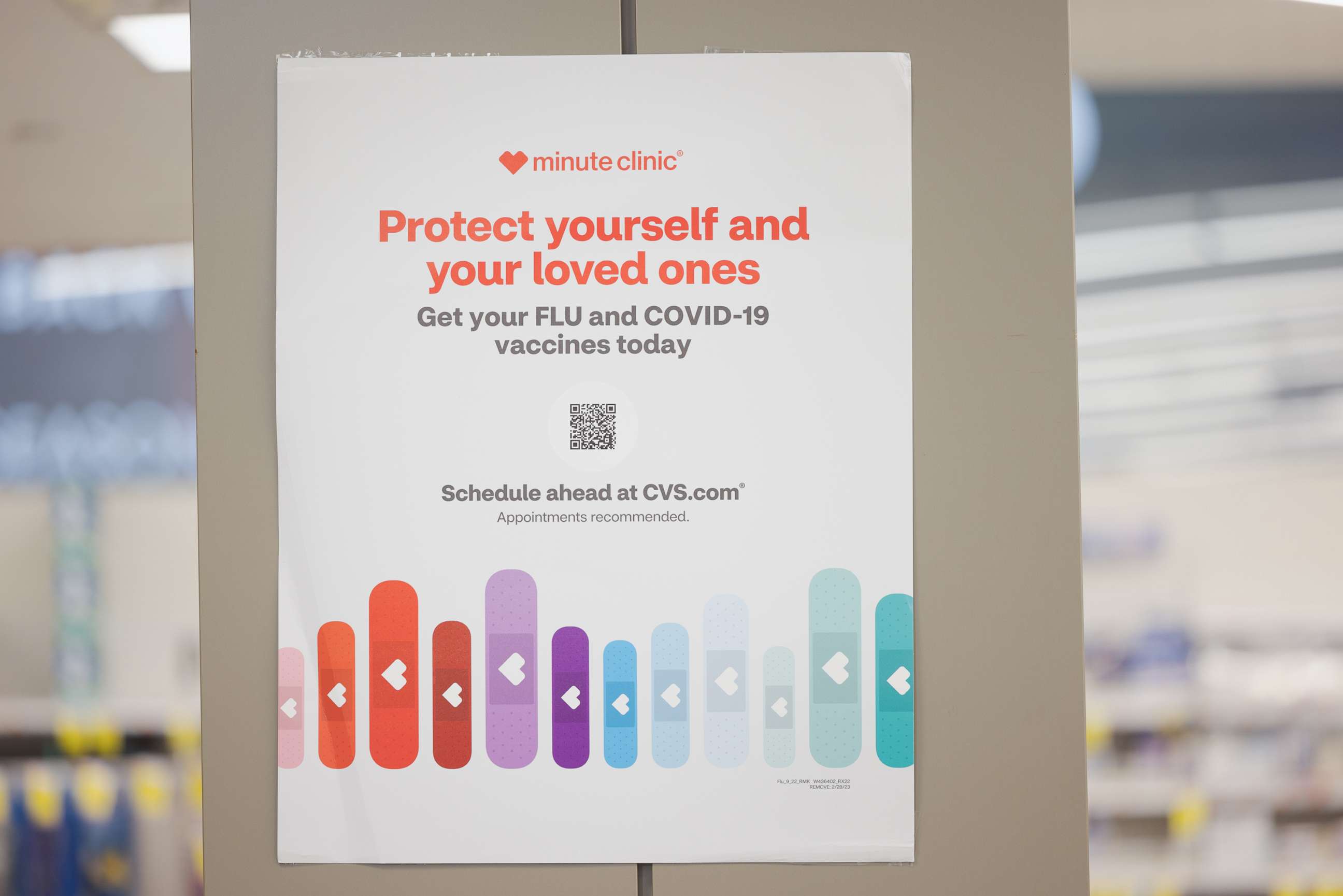Flu cases continue to rage across the US while vaccination rates lag
The Centers for Disease Control and Prevention estimates that, so far this season, influenza has already claimed 1,300 lives in the U.S. and also estimates there have been at least 2.8 million illnesses and 23,000 hospitalizations.
Cases, hospitalizations, and deaths for the flu have now almost doubled since the week prior– for the second week in a row.
"Here we are again thinking about and planning for a surge that will be really hard for us to absorb over the next couple of months," Dr. Brendan Carr, a professor and system chair of the department of emergency medicine at Mount Sinai Health System, told ABC News.
Overall, respiratory illnesses including flu are hitting young children especially hard potentially due to the recent relaxation of pandemic-era prevention efforts. So far, there have been five influenza-associated deaths in children this season- with three deaths reported this past week.
There are 14 states, as well as New York City and the District of Columbia reporting "very high" levels of influenza-like activity, according to the CDC.
The U.S is also experiencing the highest levels of hospitalization at this time in the season since over a decade. There were 6,465 newly admitted patients in hospitals just this week.

Experts say it's not too late to get a flu shot, which dramatically reduces the risk of severe illness, hospitalization, and death.
"Influenza vaccination is the single best thing we can do to prevent influenza and its serious complications," Dr. William Schaffner, a professor of preventive medicine at the Vanderbilt University Medical Center, told ABC News.
Immunization is especially important given we've been mostly protected due to COVID mitigation measures in the last few years.
"There's a lot of people who think that the increases that are happening now are because there's been a lack of exposure over the last couple of years," said Carr.
It is still possible to get the flu after getting vaccinated, but experts say your illness won't be as severe.
"As I like to tell my patients who come back to me and complain, Dr. Bill, you gave me the flu vaccine, and I still got the flu. Then I say, I'm so glad you're here to complain, because the vaccine kept you out of the hospital and kept you from dying," said Schaffner.
There are three influenza strains currently causing the disease. Two Influenza A strains, H1N1 and H3N2, and a strain of influenza B.
"Fortunately, they are well matched with what's in the current vaccines. The current vaccines protect against four strains, two A's, and two B's. So what we know early in the season is that the matches are good, effectiveness studies will come later," said Schaffner.
Despite the flu shot being your best protection, flu vaccine coverage is currently lagging, especially in adults and pregnant people. While flu vaccination among children remains similar to last season, it is 6 percentage points lower from two years ago.
A recently published study found that women who got a flu vaccine during pregnancy had a lower risk of certain negative birth outcomes, including fetal death (stillbirth), preterm birth and low birthweight. Researchers analyzed 16 years of data, adding to the body of evidence supporting the benefits of flu vaccination during pregnancy for both mother and baby.
Despite CDC recommendations for pregnant women to receive a flu vaccination during pregnancy, vaccine coverage among pregnant women in the United States has fallen 8 percentage points in the past two seasons and may be 5 percentage points lower this year compared to last, says the CDC.
"Influenza can put even healthy children and adults into the intensive care unit in 48 hours. It's a nasty virus. So, as I like to say, if you haven't been vaccinated, please don't linger. Get a vaccine as quickly as possible," said Schaffner.
Emma Egan and Youri Benadjaoud are MPH candidates at Brown University and members of the ABC News Medical Unit.




